- Levent, Yeni Sülün Sk. No:13, 34330 Beşiktaş/İstanbul
- +90533 500 92 73
Afro Hair Transplantation
Hair loss can affect people of all ethnicities, and those with Afro-textured hair have a viable option in regaining their confidence: Afro hair transplants. This procedure uses your own healthy hair follicles to fill in areas of thinning or balding.
Afro Hair Transplantation Techniques
Afro hair presents unique challenges for hair transplants due to its tight curls and varying textures. Here’s how surgeons address these:
- Follicular Unit Extraction (FUE): This is the preferred method for Afro hair transplants. FUE involves extracting individual follicular units from the donor area (usually the back of the scalp) and transplanting them to the recipient area. This minimizes scarring and allows for a natural-looking hairline.
Important Note: Some clinics might mention Direct Hair Implantation (DHI). While it can be used in some cases, FUE is generally considered the safer option for Afro hair due to the precise control it offers during implantation.
Who is Suitable for Afro-Texture Hair Transplants?
If you have Afro-textured hair and are experiencing hair loss, you might be a good candidate for a hair transplant. Here are some factors a surgeon will consider during a consultation:
- Scalp laxity: Afro hair requires enough scalp elasticity to accommodate the transplanted follicles.
- Donor area density: The surgeon will assess if you have enough healthy hair follicles in the donor area for extraction.
- Hair type: Straighter or looser curl patterns might be easier to manage during the procedure.
- Realistic expectations: Discussing your desired outcome with the surgeon is crucial. Achieving a very dense hair transplant might not be realistic due to the natural growth pattern of Afro hair.
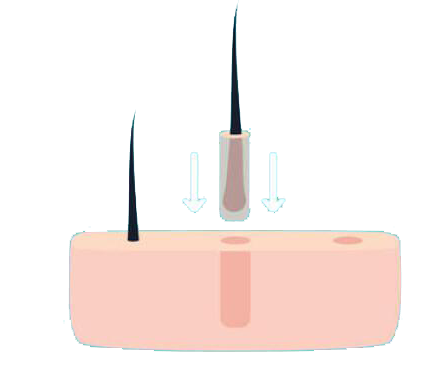
Consultation and Planning
The first step involves a consultation with a hair transplant surgeon to assess the patient's scalp, discuss their expectations, and plan the procedure. This includes determining the hairline design, the number of grafts needed, and the donor areas.
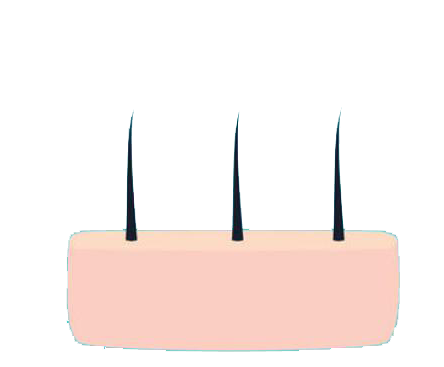
Harvesting Donor Hair
The second step is harvesting donor hair, typically from the back of the scalp, where hair is more resistant to balding. This can be done using the FUE (Follicular Unit Extraction) method, where individual hair follicles are removed one at a time, or the FUT (Follicular Unit Transplantation) method, where a strip of skin is removed and then dissected into individual grafts.
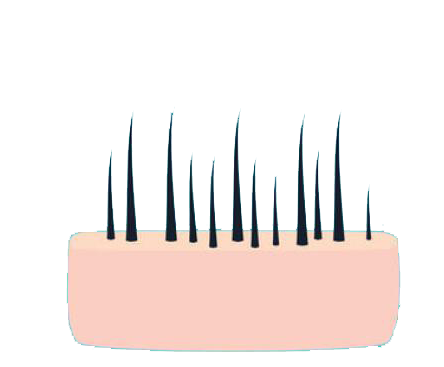
Preparation and Implantation of Grafts
Once the donor hair is harvested, the grafts are prepared under a microscope to ensure they are intact and of good quality. Then, tiny incisions are made in the recipient area, and the hair grafts are carefully implanted, paying attention to the angle and direction of the natural hair growth.
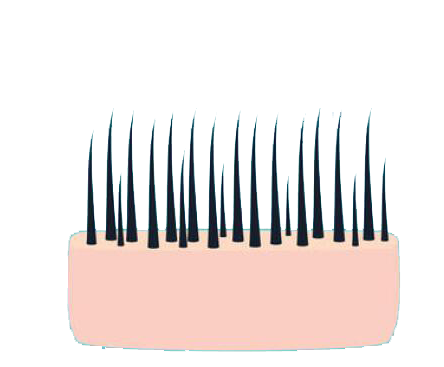
Recovery and Growth
The final step involves the patient going through a recovery phase, where they may experience some swelling, redness, and scabbing. New hair growth can usually be seen within three to four months, with more significant results visible after six to twelve months. Regular follow-ups with the surgeon are essential to monitor progress.
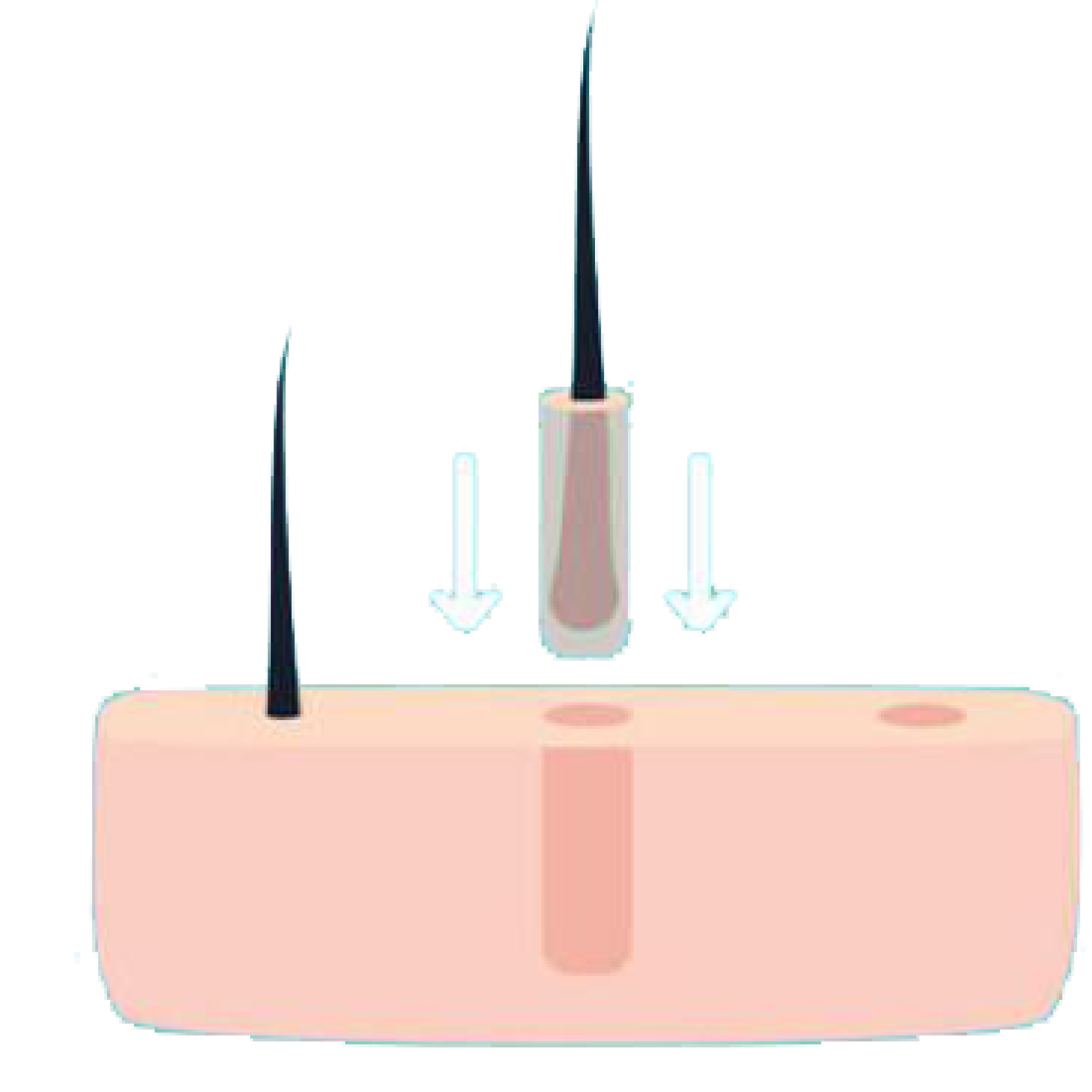
Consultation and Planning
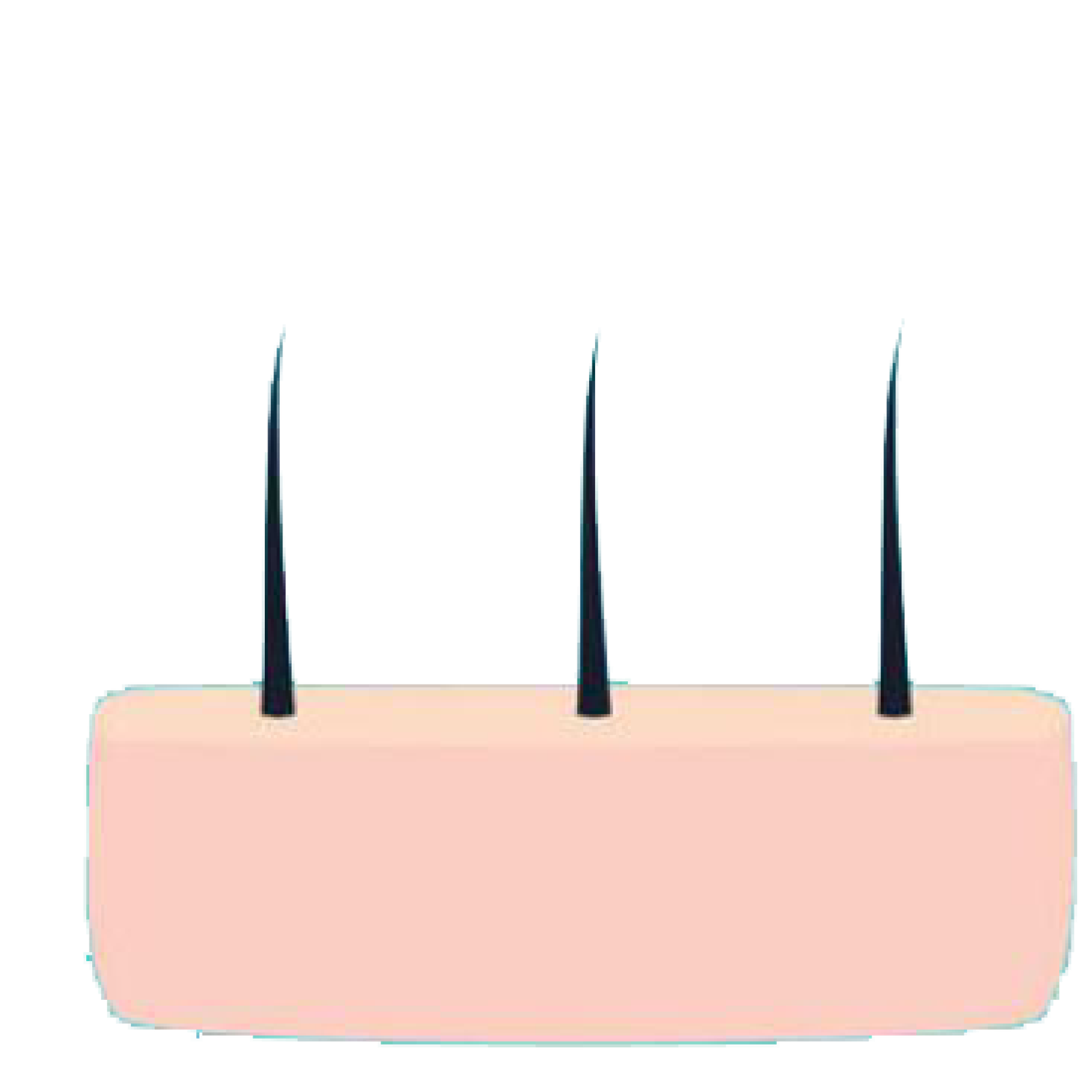
Harvesting Donor Hair
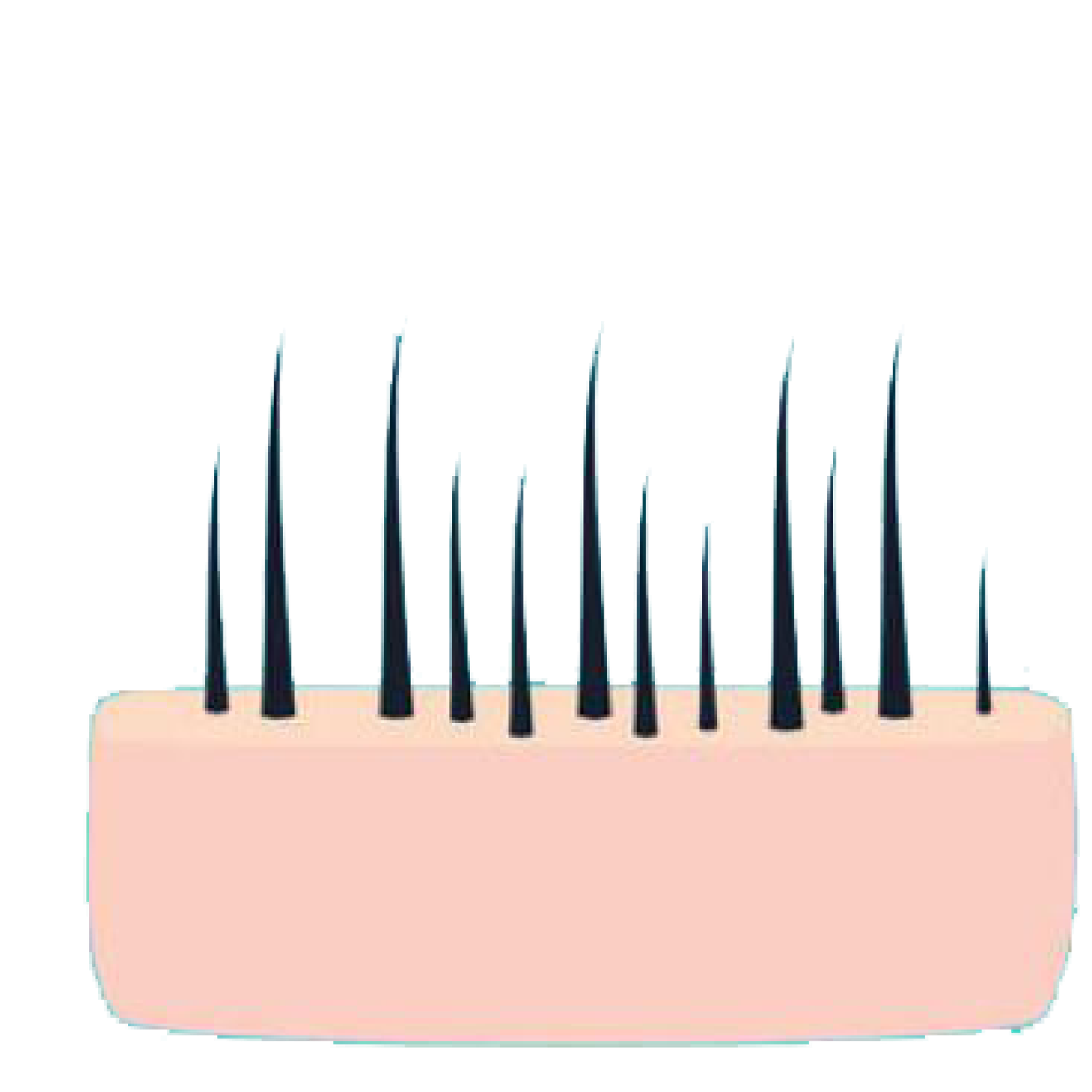
Preparation and Implantation of Grafts
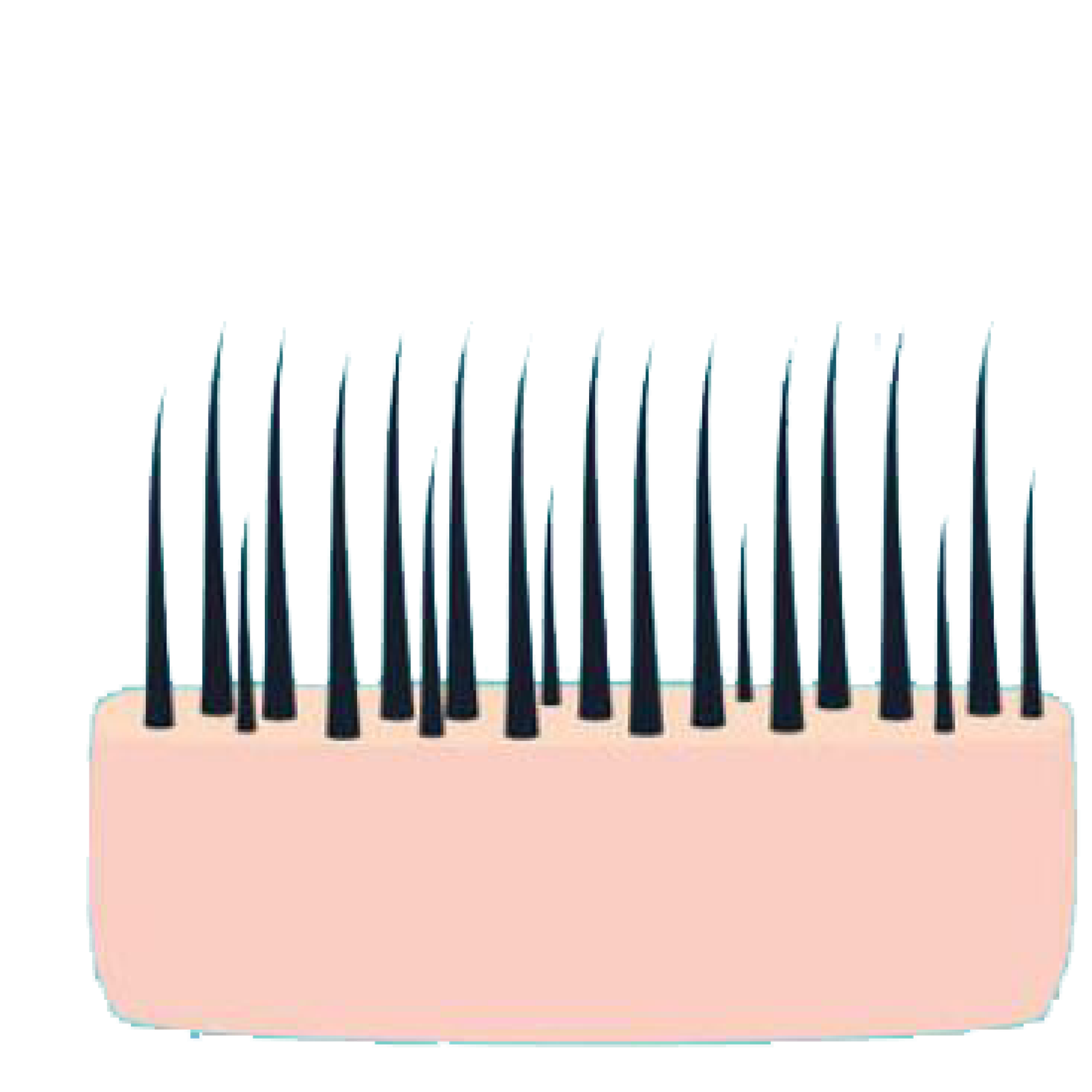
Recovery and Growth
Follicular Unit Extraction Explained:
FUE has become a preferred choice for many due to its less invasive approach. During an FUE hair transplant, the surgeon extracts single hair follicles from the donor region utilizing a precise punch instrument.
This method produces minimal scarring that is hardly noticeable and facilitates a faster healing period in contrast to the FUT technique, which involves removing a skin strip and extracting the follicles from that strip.
Precision-Driven DHI Hair Restoration
Direct Hair Implantation (DHI) represents a refined evolution of the Follicular Unit Extraction (FUE) technique. In DHI, hair follicles are harvested from a donor site and immediately implanted into the target area using a specialized device. This innovative approach bypasses the traditional step of pre-making incisions in the recipient area.
By streamlining the transplantation process, DHI offers enhanced precision and control, significantly improving the graft survival rate. This meticulous technique facilitates a more natural appearance and denser hair growth, establishing DHI as a superior option for those seeking effective hair restoration solutions.
Free hair transplant assessment
If you are interested in our services, please fill out the contact form. Jasmedico experts will contact you to provide you with an assessment and consultation.
What Does the Afro Hair Transplant Procedure Promise?
A successful Afro hair transplant can offer several benefits:
- Hair regrowth: It fills in bald or thinning areas with your own naturally growing hair.
- Improved self-confidence: Regaining a fuller head of hair can significantly boost self-esteem.
- Natural-looking results: When performed by a skilled surgeon experienced in Afro hair textures, the transplanted hair can blend seamlessly with your existing hair.
- Density: Afro hair grows in clusters, so achieving extreme density might not be possible. But the natural volume of Afro hair can create the illusion of a thicker head of hair.
- Curl pattern: The transplanted hair might not perfectly match the curl pattern of your existing hair.


What Does the Afro Hair Transplant Procedure Promise?
A successful Afro hair transplant can offer several benefits:
- Hair regrowth: It fills in bald or thinning areas with your own naturally growing hair.
- Improved self-confidence: Regaining a fuller head of hair can significantly boost self-esteem.
- Natural-looking results: When performed by a skilled surgeon experienced in Afro hair textures, the transplanted hair can blend seamlessly with your existing hair.
- Density: Afro hair grows in clusters, so achieving extreme density might not be possible. But the natural volume of Afro hair can create the illusion of a thicker head of hair.
- Curl pattern: The transplanted hair might not perfectly match the curl pattern of your existing hair.
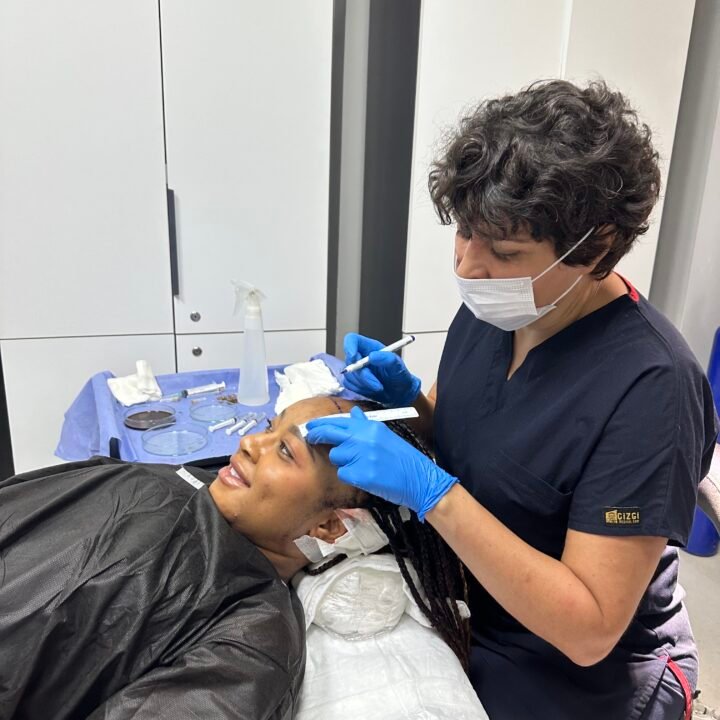
What to Expect After the Afro Hair Transplant Procedure
The recovery process for Afro hair transplants is similar to other hair transplant techniques. Here’s a general timeline:
- Immediately after: You might experience some swelling and discomfort, which can be managed with medication.
- First few days: Small scabs will form around the transplanted follicles. These will naturally fall off within a week or two.
- First few weeks: You might experience some temporary hair loss around the transplanted area. This is normal and the hair will regrow.
- 3-4 months: You will start to see visible hair growth.
- 10-12 months: Full results can be expected after a year.
Our Goal is the Quality !
We are committed to delivering exceptional results that not only meet but exceed your expectations. Our state-of-the-art techniques, combined with a team of experienced professionals, ensure that every procedure is performed with the utmost precision and care.
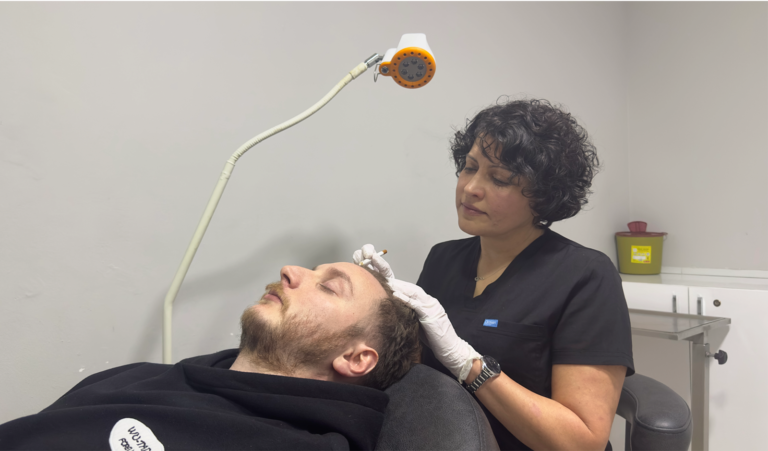
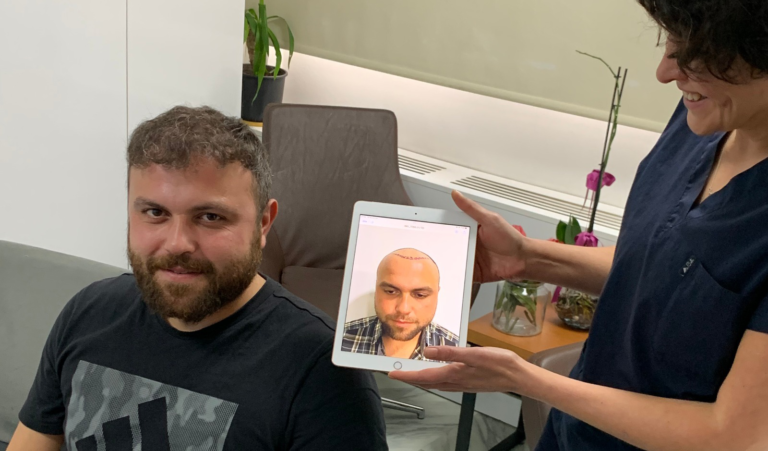
Happy patient
0
+
years of experience
0
+
Hair Growth Rate
0
%
FAQ
Absolutely! Afro hair transplants are a great option for those with Afro-textured hair experiencing hair loss. However, it’s crucial to choose an experienced surgeon who understands the unique characteristics of afro hair.
Yes. Afro hair is typically curly and grows in a curved pattern. This requires a more meticulous technique during extraction and implantation to preserve the natural curl pattern and avoid damaging the follicles.
Follicular Unit Extraction (FUE) is generally preferred for afro hair transplants. It minimizes scarring and allows for better control over graft direction to maintain the natural curl pattern.
Often, yes. Hairlines for afro hair transplants tend to be straighter across with a sharper edge compared to the typical M-shaped hairline design for Caucasian patients. Discussing your desired hairline with your surgeon is essential.
The recovery timeline is similar to regular transplants. You can expect initial shedding followed by new hair growth in 3-4 months, with final results taking up to 18 months. However, due to the curly nature of afro hair, density might appear greater compared to straight hair transplants.
CONTACT US
Get in Touch
We look forward to assisting you on your journey to hair restoration.
Choose the perfect product for you
- Phone : +44 20 8123 1903
- Phone : +90533 500 92 73
- Email : info@jasmedico.com
- Address : Levent, Yeni Sülün Sk. No:13, 34330 Beşiktaş/İstanbul
- Address : Halil Rıfat Paşa Mah. Yüzer Havuz Sok. Perpa Ticaret Merkezi A Blok No:656 34384 Şişli / İstanbul

